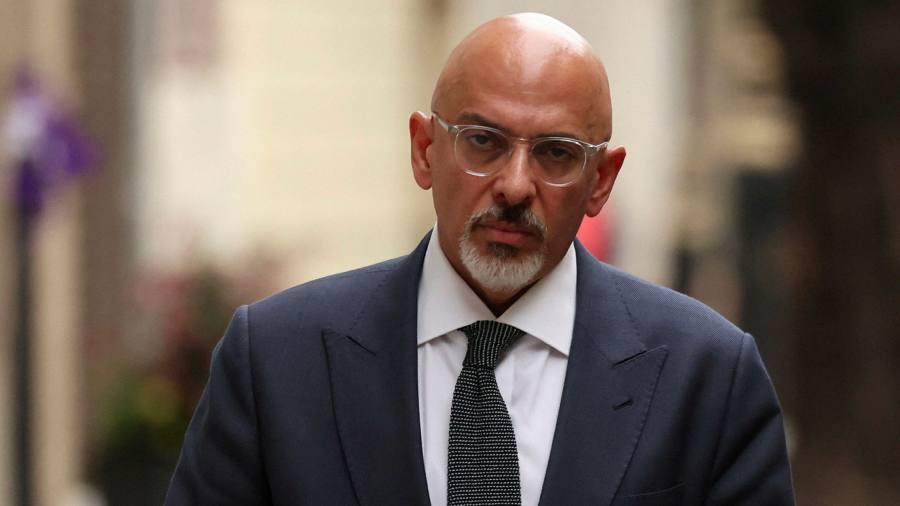Nadhim Zahawi, the UK’s new chancellor of the exchequer, has mentioned he’ll assessment authorities plans to boost company tax from 19p to 25p as Boris Johnson seeks to rescue his floundering administration.
Zahawi was appointed on Tuesday evening after the shock resignation of his predecessor Rishi Sunak, well being secretary Sajid Javid and 10 junior members of the federal government.
With Johnson battling for his future as prime minister, Downing Avenue desires the brand new chancellor to chop taxes — and cancel deliberate tax rises — in an try and win again voters, regardless of the potential penalties for Britain’s fragile public funds.
Because the resignations continued on Wednesday morning, Johnson was getting ready for a troublesome session of prime minister’s questions at noon.
In the meantime insurgent MPs are plotting to vary the Conservative get together guidelines to engineer one other vote of confidence towards him earlier than parliament’s summer time break.
Zahawi instructed Instances Radio on Wednesday morning that he might roll again the company tax rise deliberate for subsequent April. “When boards make investments, firms make investments, they make investments for the long run they usually do evaluate company tax charges,” he mentioned. “So I’ll take a look at all the things.”
April’s tax rise is meant to boost £17bn a 12 months to assist restore the general public funds after the UK authorities borrowed a whole bunch of billions of kilos to get the nation by way of the Covid-19 pandemic. It has been partly offset by a brand new “super-deduction” designed to encourage firms to step up their capital funding.
Sunak feared that chopping taxes might gas inflation which is already spiralling in the direction of double-digit figures. He mentioned in his resignation letter that he couldn’t agree an financial technique with Johnson, who is thought to dislike the looming tax rise on enterprise, as a result of their approaches have been “basically too completely different”.
One senior authorities insider urged the brand new chancellor could be pursuing a distinct financial technique to Sunak: “For the following stage, we want a plan for progress and never simply balancing the books.”
Markets can be watching whether or not a looser fiscal regime might drive the Financial institution of England to boost rates of interest sooner.
The resignations of Sunak and Javid observe a slew of scandals dogging Johnson. The newest got here final week when deputy chief whip Chris Pincher give up after allegations that he groped two males whereas drunk at a non-public members’ membership.
Downing Avenue insisted for days that Johnson had not been instructed about “particular allegations” of misconduct by Pincher up to now. On Tuesday, Johnson admitted that he had been briefed in regards to the allegations in 2019 — however had forgotten about it.
Many Tory MPs imagine that Tuesday’s ministerial mutiny indicators the start of the top for Johnson.
Will Quince, kids’s minister, give up on Wednesday morning — whereas Zahawi was on air defending the federal government — criticising “inaccurate” statements by Downing Avenue.
Laura Trott, a parliamentary non-public secretary, give up a couple of minutes earlier, saying: “Belief in politics is, and should at all times be, of the upmost significance, however sadly in latest months this has been misplaced.”
However a number of senior figures — together with deputy prime minister Dominic Raab, overseas secretary Liz Truss, defence secretary Ben Wallace and levelling-up secretary Michael Gove — have indicated they’re staying in Johnson’s cupboard.
Final month greater than 40 per cent of MPs expressed no confidence in Johnson in a confidence vote. Beneath the present Conservative get together guidelines such a poll can solely occur each 12 months.
However that might change subsequent week after the get together elects a brand new government of the backbench 1922 committee, which units the foundations for management contests.
An anti-Johnson slate of candidates is predicted to push for a rule change to permit one other vote, doubtlessly earlier than parliament breaks up in late July for the summer time recess.

